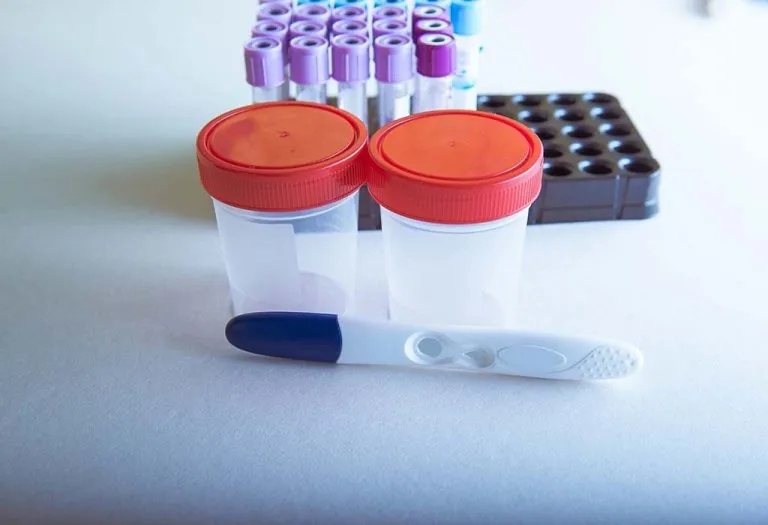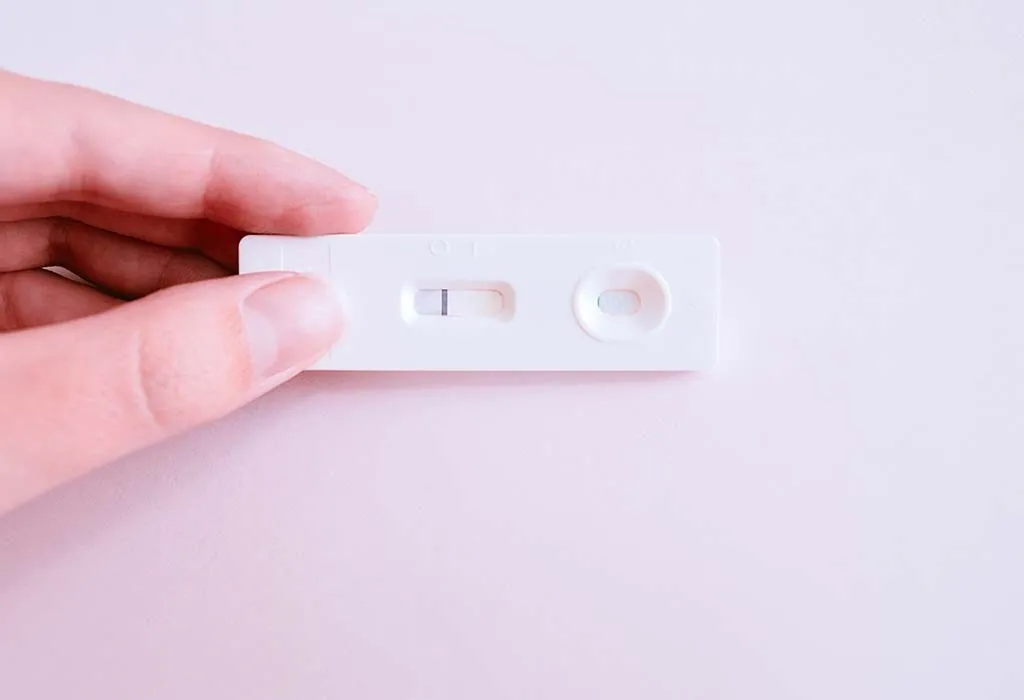Human Chorionic Gonadotropin (HCG) – Everything You Should Know About
Your body is full of proteins, hormones and other entities that can help identify whether you’re healthy or not. Abnormal levels of a small hormone or even an abnormality in the blood can lead to dire consequences. One hormone you need to keep in check is hCG, which is a pregnancy hormone that continues to increase after conception and until 10 weeks in pregnancy. hCG can be used to identify a range of growths and abnormalities within the body. If you plan to conceive, learning about hCG hormone levels can greatly help your pregnancy journey. In this article, we’ll discuss various important matters about hCG for you.
What Is HCG?
Human Chorionic Gonadotropin (hCG) is a hormone commonly used to check if a woman is pregnant, if the baby has any birth defects, or if the cause of a tumour is related to the hormone. It is often called pregnancy hormone due to its magnificent role in supporting a pregnancy (1). hCG levels usually help a doctor find out if a woman has any abnormal growths caused by irregularities in the egg or sperm.
Things You Must Know About HCG Levels
It is important to understand what hCG levels can mean and how they are formed (2):
- hCG is formed by the cells in the placenta after an egg has been fertilised and attached to the uterine wall.
- It can be possible to detect hCG through techniques such as a blood test and a urine test.
- A blood test can detect hCG as early as 11 days into conception.
- A urine test takes a little longer, and hCG can take 12-14 days to become visible in urine.
- hCG counts usually double every 48-72 hours.
- From week 8 to week 11 of pregnancy, hCG will be at its highest.
- After week 11, hCG levels start to dwindle down and level off for the rest of the pregnancy.
- Week 12 onwards you can expect hCG levels to rise every 96 hours.
- hCG levels do not always provide an accurate account of your baby’s health; they can predict birth defects and minor illnesses, but low levels of hCG can still result in a healthy delivery.
- Ultrasounds at 6 weeks gestation combined with a history of hCG levels can help increase the diagnosis criteria and improve the accuracy of the diagnosis.
- hCG levels lower than 10 mIU/mL indicate that you are not pregnant.
- hCG levels that are found to be higher than 25mIU/mL are considered a sign of pregnancy.
- The gray area between 6 mIU/ML and 24mIU/mL will require retesting after a period of 24-72 hours to confirm pregnancy.
- The ideal time to perform a transvaginal ultrasound is when the hCG levels are between 1000-2000 mIU/mL, at these levels you should be able to see gestational sacs.
- If the ultrasound is performed at levels below 1000 mIU/ML, it can lead to an inaccurate date of conception.
- The hCG tests should not be used as an individual marker to mark the commencement of pregnancy as the values greatly shift.
- hCG can be broken down into two different categories of hCG – quantitative hCG and qualitative hCG. The quantitative hCG is also known as Beta hCG. As the name suggests, qualitative hCG is used to measure if there is any hCG in the blood. This differs from the quantitative hCG which is used to calculate the actual amount of hCG in the blood.
Why Is hCG Test Done?
The hCG tests, as mentioned above, are used to detect numerous abnormalities in your body, including (3) (4):
- Pregnancy
- Tumours in the ovaries
- Tumours along the uterine wall
- Tumours in the urinary tract
- Birth defects in your baby
- Possibilities of a miscarriage
- Blighted ovum
- Ectopic pregnancy
- Molar pregnancy
- Multiple pregnancies
What Is mIU/mL?
mIU/mL is a commonly used measure to calculate the hCG levels within the blood; the technical term for this measure is Milli International Units Per Milliliter. This unit is one of the most commonly accepted measures by scientists, doctors and pharmacologists alike. This unit is considered to be one-thousandth of one full unit.
Types of HCG Blood Tests
As mentioned above, there are two ways to perform a test for hCG, a blood test and a urine test. The hCG blood tests can be broken down into two types of tests as well, the hCG quantitative test and hCG qualitative test.
1. HCG Quantitative Blood Test
This test is used to measure the actual quantity of hCG in your blood, it is usually referred to as Quantitative hCG test, Repeat Quantitative hCG test or Quantitative pregnancy blood test (5).
This test can also, in rare cases, help diagnose some types of cancer.
The blood test is done to ensure that potential mothers-to-be do not have any procedures done that may potentially harm the foetus, these can include X-Rays, MRIs and Spinal tests.
Doing an hCG quantitative blood test can help screen and diagnose any problems that could potentially be an indicator of a miscarriage or an ectopic pregnancy. In fact, the hCG Quantitative blood tests can help approximate the age of the child as well as help in the identification of diseases like Down syndrome or Edwards syndrome.
2. HCG Qualitative Blood Test
This test is performed in order to determine if there is any hCG in your blood, it is usually done before the quantitative test and is the first step towards identifying pregnancy (6). These are some common names for a Qualitative hCG blood test:
- Qualitative blood serum test hCG
- hCG serum, qualitative
- hCG beta blood serum – qualitative
HCG Urine Test
The urine test for human chorionic gonadotropin is primarily a pregnancy test. In about 10 days after conception, a fertilized egg attaches itself to the uterine wall, causing a change in hormone levels. The urine test is the first test performed to identify if you are pregnant or not. Most pregnancy kits that are sold at home are hCG-based pregnancy kits (7). These tests are far less accurate than blood tests and are known to have fluctuating results like false positives.
The test will only give results after about a week or two of egg fertilization. This test is considered qualitative much like the blood test, it only detects the presence of the hormone known as hCG but does not specify the actual quantity of the hormone itself.
How to Prepare for an HCG Test
Generally, neither the urine tests nor blood tests require preparation from the patient’s end.
How Is It Done?
The method used to perform the blood and urine tests are completely different, while you may perform the urine test on your own, the blood test requires a lab technician present to perform the test. In the case of home pregnancy tests , the urine test will not require a phlebotomist to interpret the results while they are required in the case of blood tests.
1. Blood Sample Collection
The procedure for the collection of hCG samples via the bloodstream are:
- The lab technician will ask you to extend your arm and make a fist, this is to identify the vein in your body.
- They will swab the entire region with antiseptic and antibacterial wipes.
- Once clean, they will place an elastic band or tape around the elbow region to push the vein up, this makes it more comfortable for the technician to locate the insertion point for the needle.
- The technician then inserts a needle attached to a sample collection vial.
- Once the sample has been collected, they will slowly begin removing the needle.
- The final step to this process is to swab the entire area with antiseptic and antibacterial wipes one more time.
- The sample, once collected, will be sent to a lab for analysis and then, will be sent back to either you or your doctor.
- Make an appointment with your doctor for a detailed discussion about the results of the test and what they mean.
2. Urine Sample Collection
For urine samples, the procedure varies depending on whether you do the procedure at home, in a lab or a hospital.
The procedure for urine sample collection at home is:
- Ensure you read the instructions for the home pregnancy test kit carefully; the method changes as per the company.
- Give yourself at least a few hours between drinking any liquids and doing this test. Large consumption of liquids before the test can alter test results.
- Wait for at least one to two weeks after you miss your period before taking the test.
- Do the urine test when you first visit the washroom in the morning for more accurate results.
- Collection of the sample usually involves collecting urine in a sterile container and dispensing the sample on a pregnancy stick using a dropper or directly using the pregnancy stick to collect the sample. This varies from brand to brand.
Urine samples collected at home give you a result almost immediately. Most of the home pregnancy kits will make you wait for about 2-10 minutes for a result, but waiting for at least 10 minutes gives much more accurate results (7). There is a larger risk of false positives with home pregnancy kits than lab tests.
The procedure for collection of a urine sample at the hospital usually involves collecting the sample in a container that the hospital provides. Listen carefully to the lab technician’s instructions and follow them, once the sample is collected the technician will send it to the lab for analysis. Once the result is analysed, you can either pick it up from them or have them send it to you. The risk of a false positive still exists with lab-collected samples, but it is lower than that of the home-collected samples.
Once you have the results of either the home test or the lab-collected test, consult your doctor for further diagnosis and treatment plans.
Risk of Blood Tests
Like with any tests, hCG blood tests carry some risks.
- There is an extremely small chance of a septic infection due to the needle. Usually, antiseptic wipes rule out this condition but in extremely unusual or rare situations the infection can still manifest.
- There is an extremely minute chance of a hematoma developing. This means the blood begins to accumulate underneath the skin.
- In rare cases where the needle is pulled out in a rushed or jerky movement, or the patient tries to remove it themselves, there is a chance of excessive bleeding.
- In some cases, the patient may feel faint or dizzy once the blood is drawn.
hCG Results
In the case of hCG, if the result comes out normal, then you are neither sick nor pregnant. In case it comes out abnormal, however, the result indicates an abnormal growth within your body, which is most likely a foetus beginning to develop. In some cases, however, it could indicate issues like ectopic pregnancies or an increased chance of miscarriage; as mentioned above, this test could also, in some cases, indicate cancer. hCG can lead to a diagnosis of:
- Ovarian cancer
- Trophoblastic tumours
- Hydatidiform moles
hCG Level Week By Week
The following chart helps you understand the normal levels of hCG during pregnancy on a week-by-week basis.
As the chart of hCG levels below indicates, hCG levels can take a dramatic leap before falling back down during the midway point of the pregnancy. During the initial stages of pregnancy, the week-by-week level chart is generally as follows (2):
| 3 weeks | 5-50 mIU/cc |
| 4 weeks | 4-426 mIU/cc |
| 5 weeks | 19-7,340 mIU/cc |
| 6 weeks | 1,080-56,500 mIU/cc |
| 7 – 8 weeks | 7,650-229,000 mIU/cc |
| 9 – 12 weeks | 25,700-288,000 mIU/cc |
| 13 – 16 weeks | 13,300-254,000 mIU/cc |
| 17 – 24 weeks | 4,060-165,400 mIU/cc |
| 25 – 40 weeks | 3,640-117,000 mIU/cc |
What Are Low hCG Levels?
hCG levels are dependent on how far the pregnancy has progressed. It can also be indicative of certain issues that require medical assistance. This includes the possibility of a miscarriage, a blighted ovum or even an ectopic pregnancy. Your doctor may ask you to redo the test again after 48 to 72 hours.
Causes of Low hCG Level in Early Pregnancy
Some causes of low hCG level in early pregnancy are (8):
- Miscarriage in the early stages of pregnancy
- An ectopic pregnancy
- Blighted ovum, where a fertilized egg attaches to the uterine wall successfully but does not develop
What Are High hCG Levels?
High hCG levels could be indicative of a miscalculation in the date of the pregnancy in itself. However, a high hCG level could also be a sign of multiple pregnancies or a molar pregnancy, which is a genetic error during fertilization.
What Affects the Tests?
There are few things that can affect or influence your hCG test results and false positives are rare. However, there are certain conditions like the ones given below that may affect the hCG test (9).
- Certain forms of cancer
- Miscarriage
- Certain antibodies
- Medications that contain hCG
- Presence of blood or protein in urine
- Urinary tract infection
- Conditions like kidney disease, ovarian cysts, etc.
FAQs
Here are some frequently asked questions about hCG:
1. Should I Check My hCG Levels Regularly?
hCG tests are not conducted very regularly and will not be required very often. Your doctor will ask to get your hCG levels tested only if you show signs of any problems with the pregnancy, such as severe cramping and bleeding, or if you have a history of miscarriages.
2. What Should I Expect My hCG Level to Be after Pregnancy?
You hCG level will normalize in about 4 to 6 weeks after pregnancy. This is usually dependent on how the pregnancy was terminated. You healthcare provider will keep a track of the levels until it drops below 5 mlU/cc.
3. Why Does hCG Level Fluctuate?
hCG is a hormone that is secreted by the placenta to signal the body that higher levels of progesterone are necessary to maintain the pregnancy. hCG levels hence increase in the first semester and then begin decreasing around the second and the third semester as the pregnancy develops.
4. Can My Doctors Tell Whether I’m Having Twins or Not from hCG Level?
Since twins usually have two placentas, and the placenta secretes hCG, your hCG levels will be higher during a twin pregnancy. So, based on this, doctors will be able to tell you if you are having twins.
5. Does hCG Cause Morning Sickness?
HCG may be responsible for stimulating the part of the brain that triggers nausea. However, it is not the only hormone that does this, estrogen is known to do this as well.
hCG is produced during pregnancy and will increase as the pregnancy progresses. The level of hCG is used to determine the quality of the pregnancy. You must consult your doctor on whether this test is necessary for you and what the implications of the results mean. The test provides no diagnosis, but is an indication of other conditions.
References/Resources:
1. Human Chorionic Gonadotropin; Cleveland Clinic; https://my.clevelandclinic.org/health/articles/22489-human-chorionic-gonadotropin
2. What are HCG Levels?; American Pregnancy Association; https://americanpregnancy.org/getting-pregnant/hcg-levels/
3. hCG test; Healthdirect Australia; https://www.healthdirect.gov.au/hcg-test
4. Betz D, Fane K. Human Chorionic Gonadotropin; StatPearls Publishing; https://www.ncbi.nlm.nih.gov/books/NBK532950/
5. HCG blood test – quantitative; UCSF Health; https://www.ucsfhealth.org/medical-tests/hcg-blood-test—quantitative
6. Pregnancy; FDA; https://fda.gov/medical-devices/home-use-tests/pregnancy
7. Pregnancy tests; OASH; https://www.womenshealth.gov/a-z-topics/pregnancy-tests
8. hCG levels; Pregnancy Birth & Baby; https://www.pregnancybirthbaby.org.au/hcg-levels#multiple-pregnancies
9. Human chorionic gonadotropin (hCG or b-hCG); Canadian Cancer Society; https://cancer.ca/en/treatments/tests-and-procedures/human-chorionic-gonadotropin-hcg-or-b-hcg
Also Read:
HCG Injection while Pregnant
HCG Levels during Twin Pregnancy
HCG Levels After Miscarriage
Was This Article Helpful?
Parenting is a huge responsibility, for you as a caregiver, but also for us as a parenting content platform. We understand that and take our responsibility of creating credible content seriously. FirstCry Parenting articles are written and published only after extensive research using factually sound references to deliver quality content that is accurate, validated by experts, and completely reliable. To understand how we go about creating content that is credible, read our editorial policy here.




































